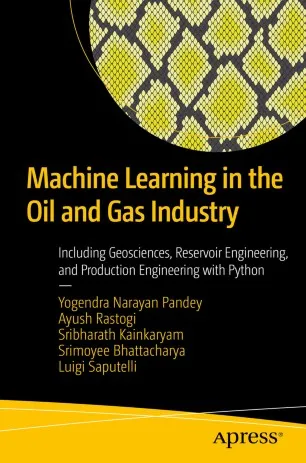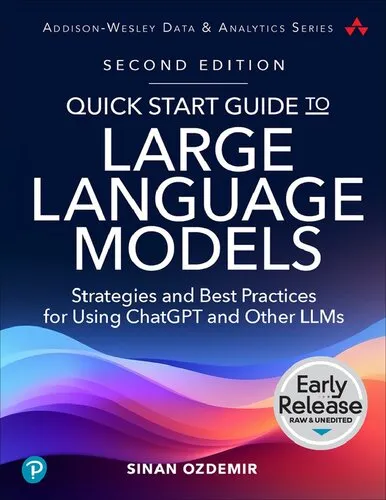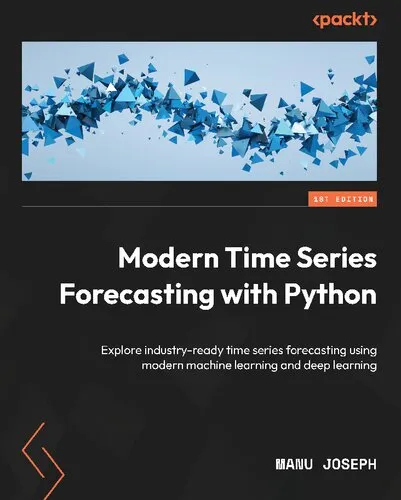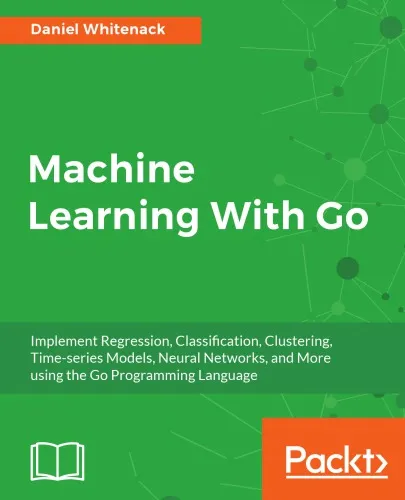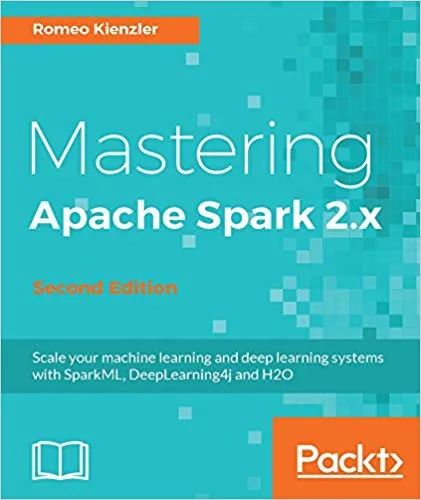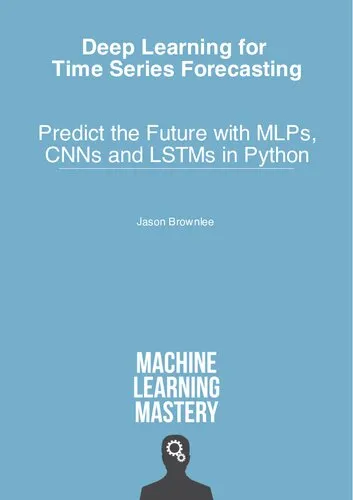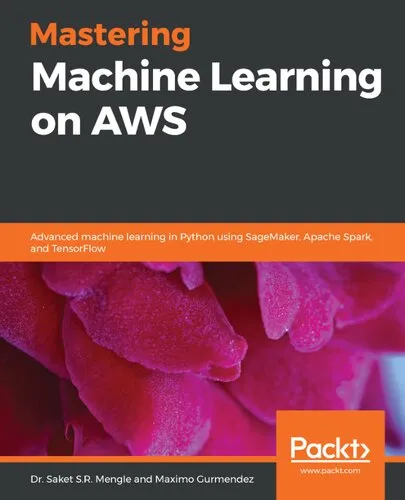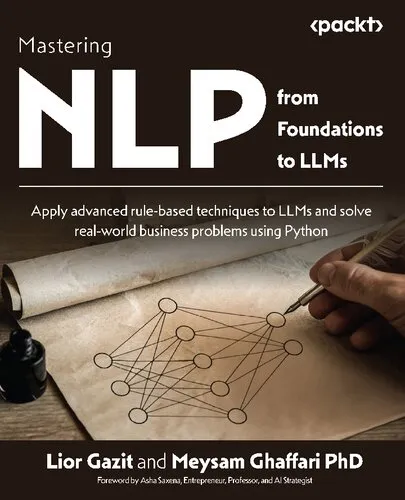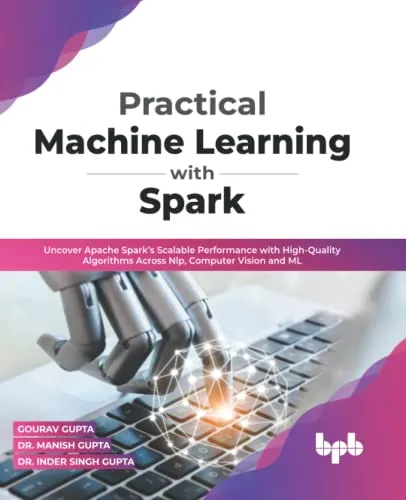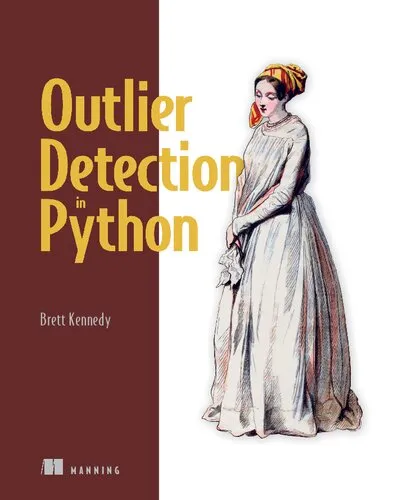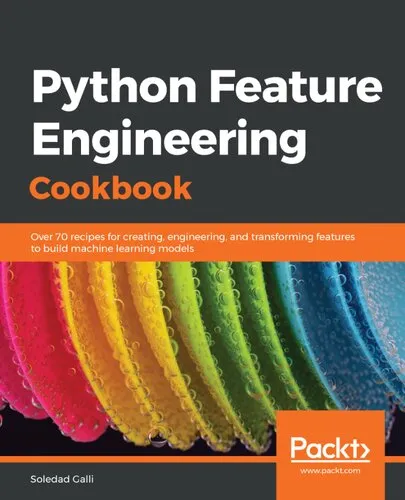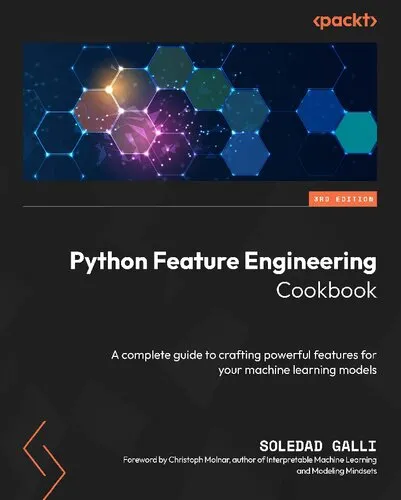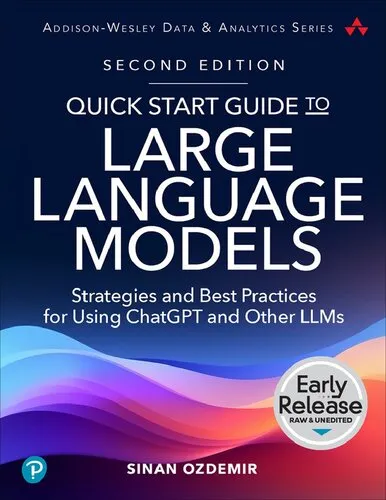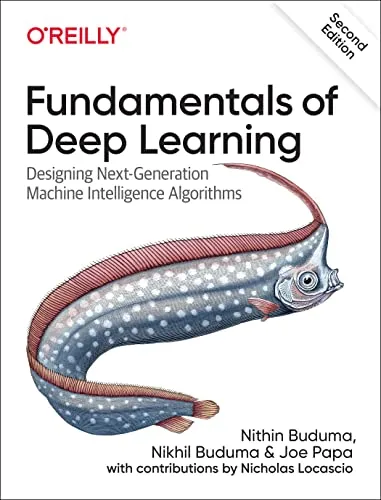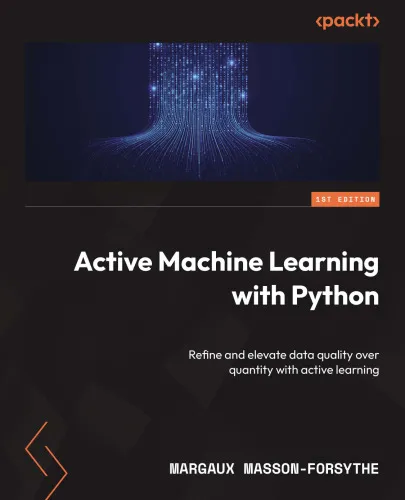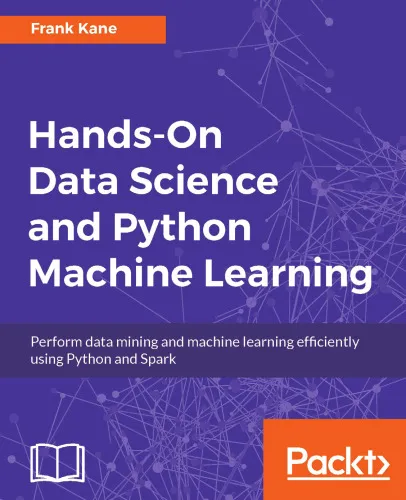Machine Learning in the Oil and Gas Industry : Including Geosciences, Reservoir Engineering, and Production Engineering with Python
5.0
Reviews from our users

You Can Ask your questions from this book's AI after Login
Each download or ask from book AI costs 2 points. To earn more free points, please visit the Points Guide Page and complete some valuable actions.Related Refrences:
Analytical Summary
The book Machine Learning in the Oil and Gas Industry : Including Geosciences, Reservoir Engineering, and Production Engineering with Python stands as a comprehensive reference for integrating advanced machine learning techniques into the complex workflows of the petroleum industry. Authored by Yogendra Narayan Pandey, Ayush Rastogi, Sribharath Kainkaryam, Srimoyee Bhattacharya, and Luigi Saputelli, it bridges the academic depth of computational science with the pragmatic demands of oilfield operations.
Across geosciences, the text illustrates how seismic interpretation, stratigraphic modeling, and well-log data analysis can benefit from supervised and unsupervised learning methods. In reservoir engineering, it covers topics like production forecasting, reservoir modeling, and history matching enhanced by predictive analytics. For production engineering, real-time sensor data integration and predictive maintenance are central themes, highlighting the transformation of legacy processes through Python-based solutions.
This book addresses the growing convergence between petroleum engineering data analytics and cutting-edge data science, emphasizing practical workflows, reproducible Python scripts, and domain-specific case studies. Readers will gain both conceptual understanding and hands-on capacity to implement algorithms, making it valuable not only for seasoned professionals but also for graduate students in energy-focused programs.
Key Takeaways
Each chapter offers actionable insights into the strategic application of machine learning in various segments of the oil and gas value chain.
By the end, readers will understand the role of feature engineering in improving model performance for geoscientific datasets, develop robust workflows for production forecasting using historical and sensor data, and evaluate machine learning architectures fit for subsurface and surface level challenges. They will also appreciate the nuances of model interpretability, risk assessment, and the integration of domain knowledge into data-driven decision making.
Memorable Quotes
"Machine learning is not just a tool; it is an evolving partner in unlocking subsurface mysteries." Unknown
"The oil and gas industry thrives when physics-based understanding meets data-driven innovation." Unknown
"Python empowers engineers to translate algorithms into operational value at unprecedented speed." Unknown
Why This Book Matters
The value of this resource lies in its interdisciplinarity and applicability. It does not treat machine learning as an abstract concept but as a tangible enabler of operational efficiency and scientific discovery within the energy sector.
Machine learning applications in energy sector are often discussed in isolation from the domain expertise they require. This book is different: it embeds algorithms within geoscientific, reservoir, and production contexts, ensuring relevance and accuracy. It emphasizes that the success of petroleum engineering data analytics hinges on proper data preprocessing, validation, and continual learning loops.
Information on the book’s publication year and any awards is unavailable due to no reliable public source, yet the technical depth and clarity suggest it is intended to remain relevant despite the fast pace of digital transformation in oil and gas operations.
Inspiring Conclusion
In a time when industries are increasingly data-centric, Machine Learning in the Oil and Gas Industry : Including Geosciences, Reservoir Engineering, and Production Engineering with Python offers an authoritative blueprint for merging domain expertise with computational power.
By unveiling the practical intersections of machine learning and petroleum engineering, the authors invite readers to not only absorb the knowledge but to operationalize it in their respective fields. Whether you are an academic exploring algorithmic applications in geoscience, a reservoir engineer looking to refine forecasting accuracy, or a production engineer focused on predictive maintenance, the insights here will serve as a lasting guide.
Your next step is clear: read deeply, share your learnings, and engage with peers to push the frontier of digital innovation in the oil and gas sector.
Free Direct Download
You Can Download this book after Login
Accessing books through legal platforms and public libraries not only supports the rights of authors and publishers but also contributes to the sustainability of reading culture. Before downloading, please take a moment to consider these options.
Find this book on other platforms:
WorldCat helps you find books in libraries worldwide.
See ratings, reviews, and discussions on Goodreads.
Find and buy rare or used books on AbeBooks.
1174
بازدید5.0
امتیاز0
نظر98%
رضایتReviews:
5.0
Based on 0 users review
Questions & Answers
Ask questions about this book or help others by answering
No questions yet. Be the first to ask!
